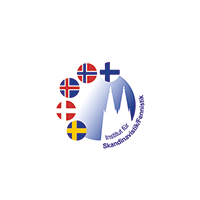Studying in general
There are different types of events during your course of studies. At the beginning of the course, however, it is very important to distinguish between (introductory) seminars and lectures: In contrast to a lecture in which the lecturer presents a topic, students are expected to actively participate in a seminar. However, do not be scared by the term participation: Participation does not mean that you have to know everything beforehand. The preparation and follow-up of seminars and lectures varies from time to time, but most often it involves working through your notes from the previous lecture and reading the texts that are required as background information. However, it may also be necessary to complete exercises or something similar.
For the language courses, you usually have to do ‘school-like’ homework, i.e. grammar exercises, writing texts and learning vocabulary. In addition, self-study at home also includes other elements, for example reading Scandinavian literature or simply dealing with topics that were not discussed in the seminar, but which you are interested in.
Studying also involves working independently. As a rule of thumb, it is estimated that the time for work at home is at least the same as the actual duration of the lecture. This means that for a lecture with two credit points, you should also plan at least two hours in total before and after the lecture; it is up to you when you prepare or go through your notes again. Depending on the event, you should still allow enough time to study for exams or to write your term papers – although papers can usually be written during the semester break.
So studying involves a lot more than just attending the events. Tip from advanced students: Don't overfill the timetable at the beginning.
